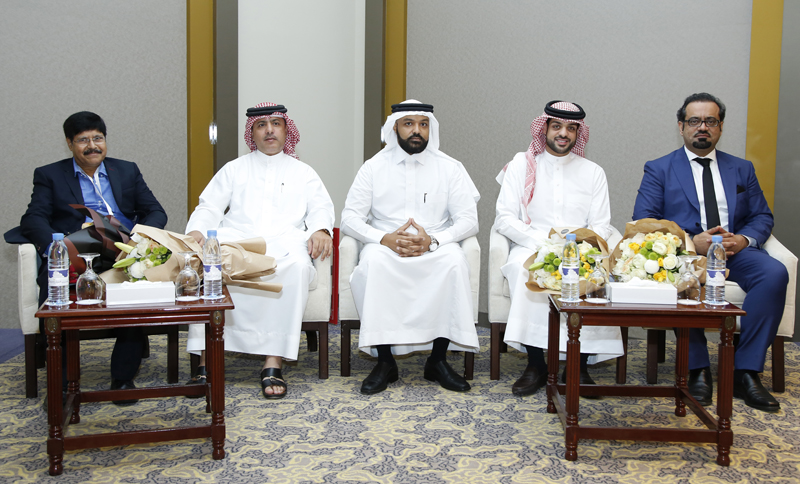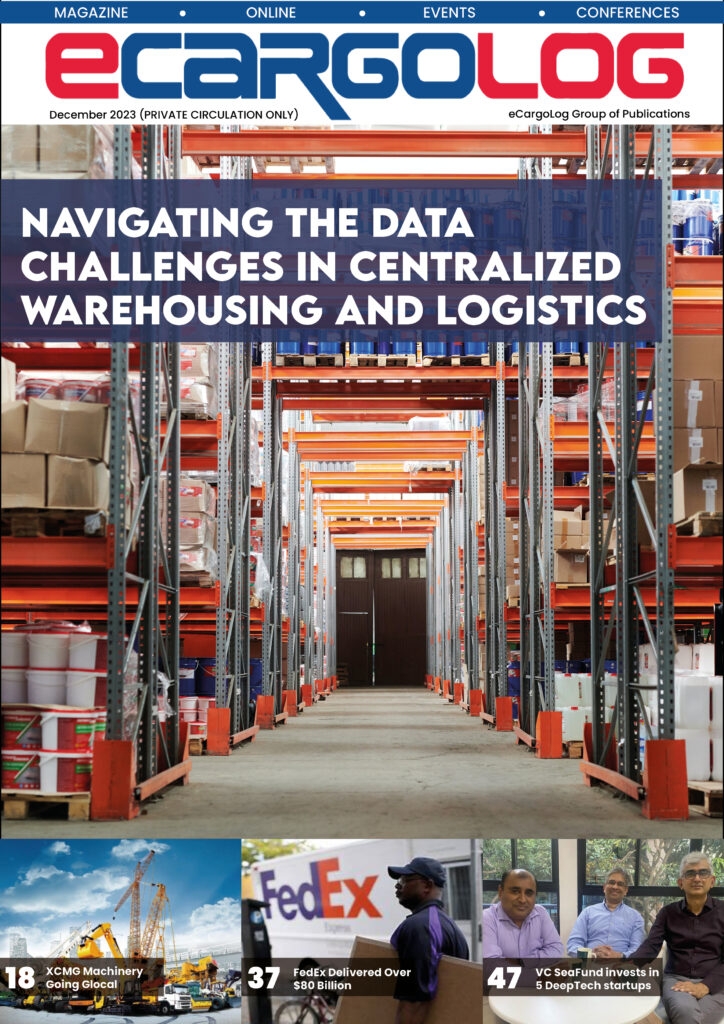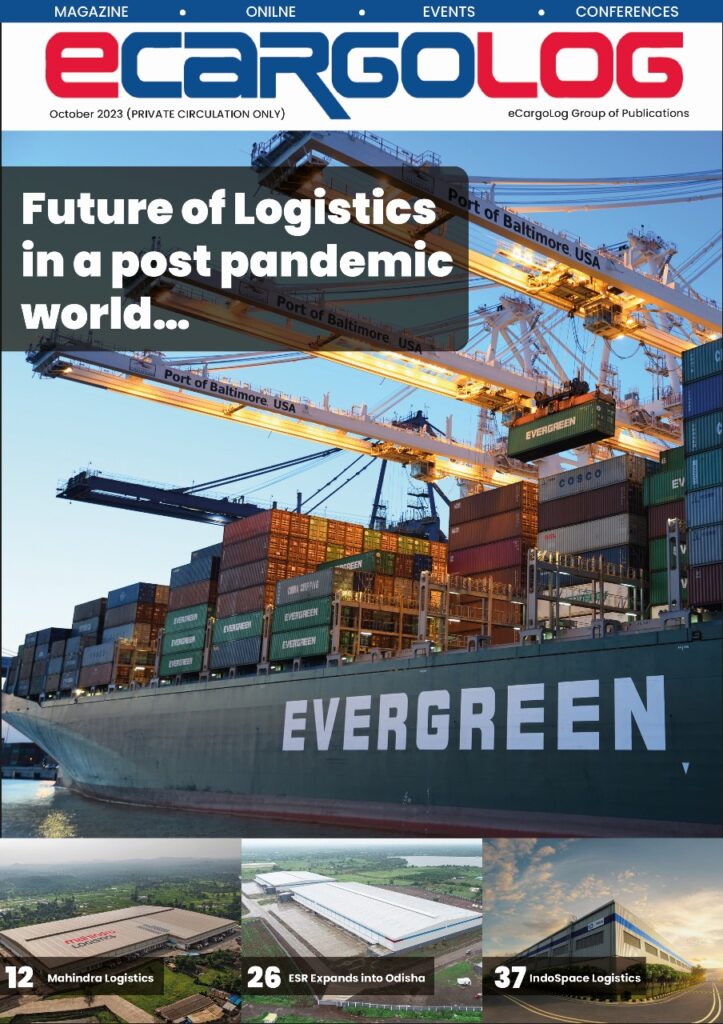ME-LOGISTICS’17, organized by POORNA CORP. Bahrain, largely attended by the Professionals from Airline, Logistics companies and from the shipping industry, was really a good treat with their overwhelming response.
With the inaugural speech delivered by Mr. Yousif Isa Bubshait, Assistant Under Secretary, Ministry of Transportation and Telecommunications, the session started on the topic, ‘Improvement on Infrastructure Capability and Investment’ with an elaborate presentation by Arno Storm, COO of APM Terminals, introduction to the World of Shipping, Global Maritime Trade and the Economic Development. In his presentation, he further added that The APM Terminals Global Terminal Network is the world’s most geographically balanced port and terminal network, with facilities operating on every major trade lane and in every major market. Global container fleet overcapacity as new vessels continue to be added into service as scrapping levels slow, consolidation of smaller lines to compete with the industry giants in economies of scale, port congestion caused by higher trade volumes as well as larger vessel size, freight rate instability and downward pressure on rates in an effort to fill larger vessels, rapidly increasing top vessel sizes from EEE-Class 18,270, to China Shipping’s 19,100 to MSC’s 19,224 TEU capacities in 2014. OOCL has six 21,100 TEU capacity vessels scheduled for delivery in 2017, and vessels as large as 24,000 TEU capacities reportedly under design consideration. Liner service vessel speeds are now increasing from the current 22 knots, effected in response to higher fuel prices, as oil prices continue to fall, were the key constrained, he show cased.
The Maersk Madrid, the first of 11 second-generation Triple E Class vessels, with a capacity of 20,568 TEUs was delivered in April 2017.
The other speakers – representing the BCCI, BSAA, GAC, Bahrain Air Transport et al actively took part in the session.
Statistical presentation by the Gulf Air Director – Sales & Marketing, Yahya Ali Buali, about the Gulf Air fast facts, Network, Cargo Partners, Air fleet which would commence delivery from Q2 2018, providing Gulf Air with expansion capabilities for its future network and capacity requirements, ensuring it maintains one of the youngest fleets in the region while building upon its award-winning reliability and on time performance, was really commendable. Whilst revealing that the two aviation infrastructure assets are growing in support of the Kingdom’s future development and long term needs, Falcon Cargo Products and its growth projections – would double its capacity and performance by to 199,770 tons, by the year2020!
The cynosure of the event was by the presentation given by Philippe Norre, Bahrain Tax and Corporate Services Partner of KPMG, who revealed that the new Value Added Tax (VAT) unlikely to be introduced until June 2018, to the entire Gulf countries – including Bahrain. He explained that how the percentage of tax varies from country to country UAE being the lowest of 5%. Total cost of implementing the tax, for the Govt. and the private sector would be in the reach of 80 to 100m BD, he estimated.
The Director of Bahrain Logistics Zone, Hamad Fakhro, started his presentation – moving the start way – smart location – how Bahrain is ideally located to capture the Northern Gulf market, a region with US$ 1.2 Trillion GDP and growing logistics opportunities. He added up the facts and figures on the Sea connectivity – Khalifa Bin Salman Port a Gateway to the Northern Gulf – Total Investment over US$ 600 million Capacity of 1.1 Million TEU with an Upgrade Opportunity of 2.5 Million TEU Port Overall Area 900,000m² with a 15 Meter Quay Depth Privately Managed & Operated by APM Terminals; Air connectivity – by Bahrain International Airport Infrastructure Development. Modernisation of the airports infrastructure and cargo handling capacity allowing for advanced logistics services. Estimated Completion Date 2020. The new terminal will increase the airports capacity from 8 to 14 million passengers, and from 0.5 to 3 million tonnes of cargo handling capacity; and, Land connectivity – Connection with Neighbouring Countries King Fahd Causeway (25 km) linking Bahrain and Saudi Arabia, More than 1,000 trucks of cargo cross daily. King Hamad Causeway, a second causeway linking Bahrain to Saudi Arabia, Estimated Completion Date 2023. GCC Railway, a 2100km railways connecting the Gulf Countries, Estimated Completion Date 2023. Explaining how the Salman Industrial Area is protected with the Eco-system, Intermodal Logistics he invited the industrialists to take part in the BLZ, offering the facilities and the advantage of having one in this zone.
This was followed by Khalid Albakry, President of Arasco Group, Saudi Arabia, who touched upon the multi-modal hub and their activities with a host of facilities extended by their associates. The importance of the logistics sector and its role in supporting and developing the economy, important challenges for the logistics sector in KSA and the development and upgrading of the logistics services sector in KSA – improving its efficiency in order to support the national economy and keep pace with the 2030 vision. And their mission to provide comprehensive logistics solutions to companies operating in the Kingdom of Saudi Arabia, including all services all stages of the supply chain and all means of transport
The event really made the logistics fraternity to look back seriously and take a note and stock of the situation for the development side, on the whole.








